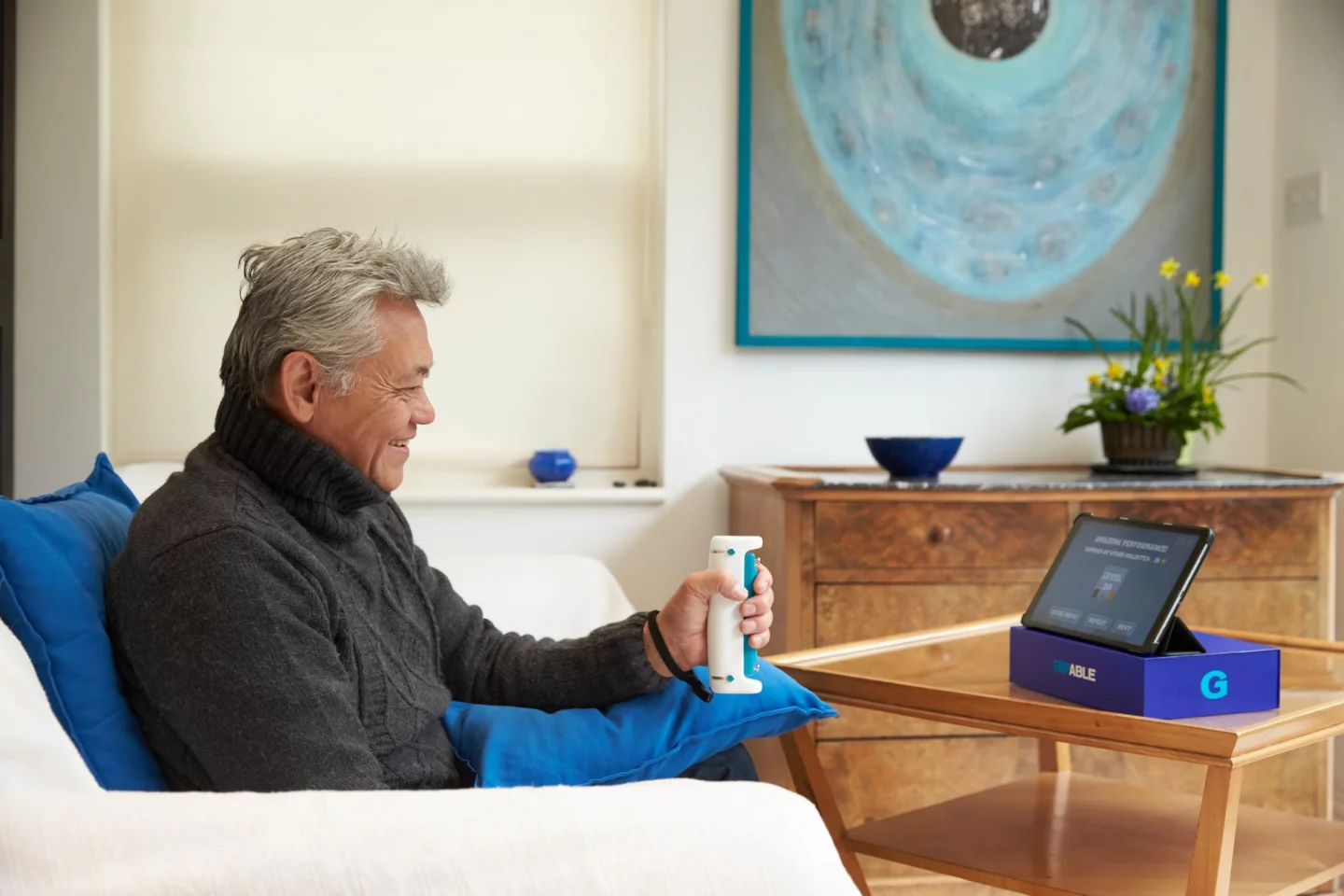When someone has suffered arm weakness due to a stroke, it's important for them to perform repetitive exercises in order to regain strength in the limb. A new device is designed to help them do so, as they use the gadget to play video games.
Designed by a team at Imperial College London, the rehabilitation tool is known as the GripAble. The patient holds the device in the hand of their affected arm, then uses it as the controller for games played via an app on a wirelessly linked tablet.
As its name implies, the GripAble requires users to squeeze and release its hand grip in order to control gameplay. That said, they're also called upon to turn and lift the tool, adding to the range of arm-strengthening exercises. The device is reportedly capable of detecting even very slight muscle movements, and vibrates to let users know that it's done so.
Ordinarily, such rehabilitative exercises are performed in a clinical setting, under the supervision of a trained therapist. The idea behind the GripAble – and other devices like it – is that patients are able to continue exercising on their own, at home, allowing them to recover faster. They'll also have a bit more fun in the process, helping to provide motivation.

In a 2019 clinical trial involving 30 stroke patients with upper limb weakness, it was found that unsupervised use of the GripAble allowed them to perform an average of 104 arm-strengthening repetitions per day. By contrast, conventional therapy alone only allowed them to do an average of 15.
"The findings from this clinical trial provide evidence that GripAble can be adopted to help further support stroke patients with severe arm weakness with their rehabilitation unsupervised," says Dr. Paul Bentley, co-author of a paper on the study. "This could have big implications for the NHS [National Health Service], given that recovery from stroke is strongly influenced by exercise intensity."
A larger trial is now being planned, which will also explore how the additional exercising affects patient outcomes. The paper was recently published in the journal Neurorehabilitation & Neural Repair.
Sources: Imperial College London, GripAble





